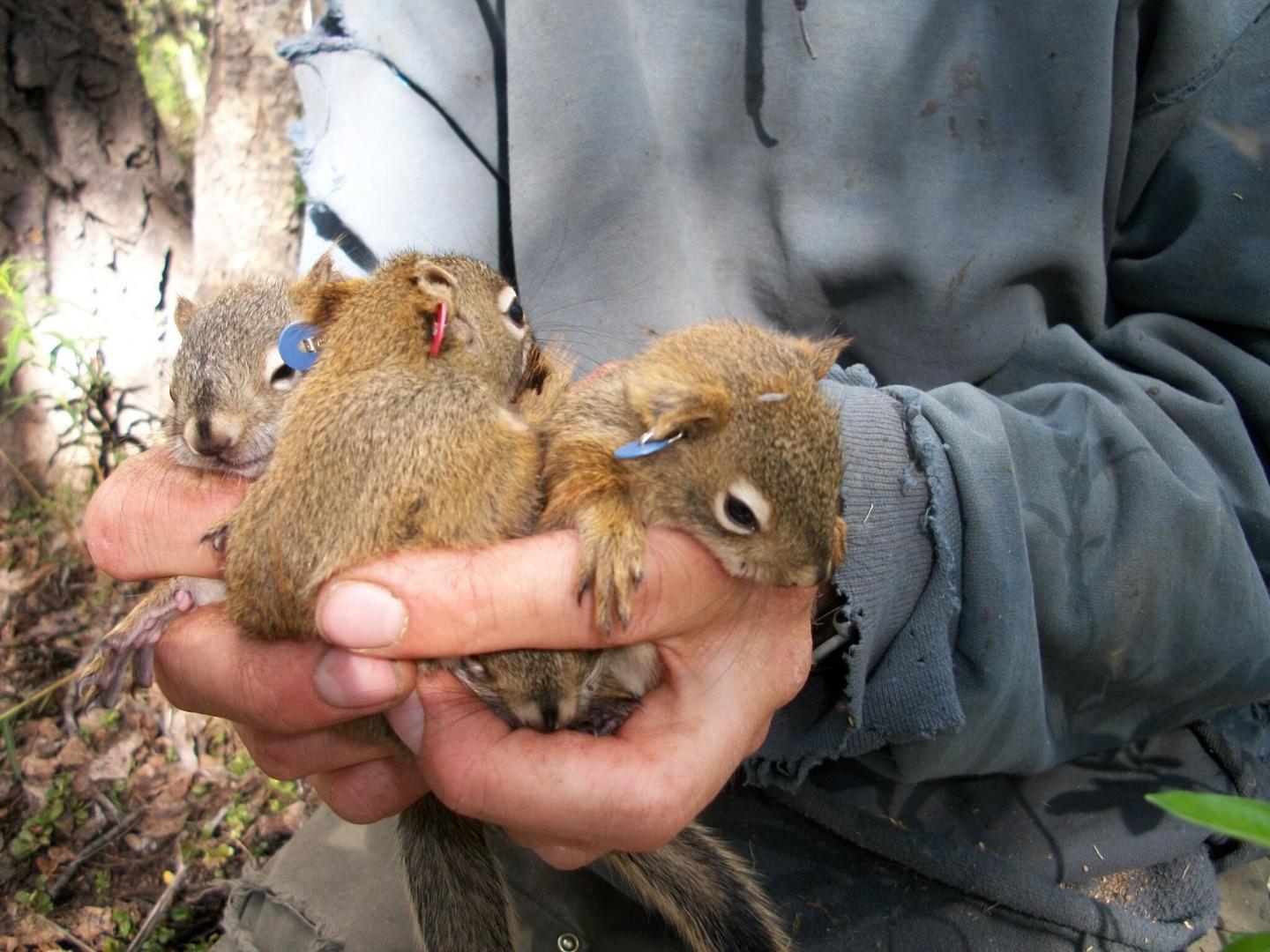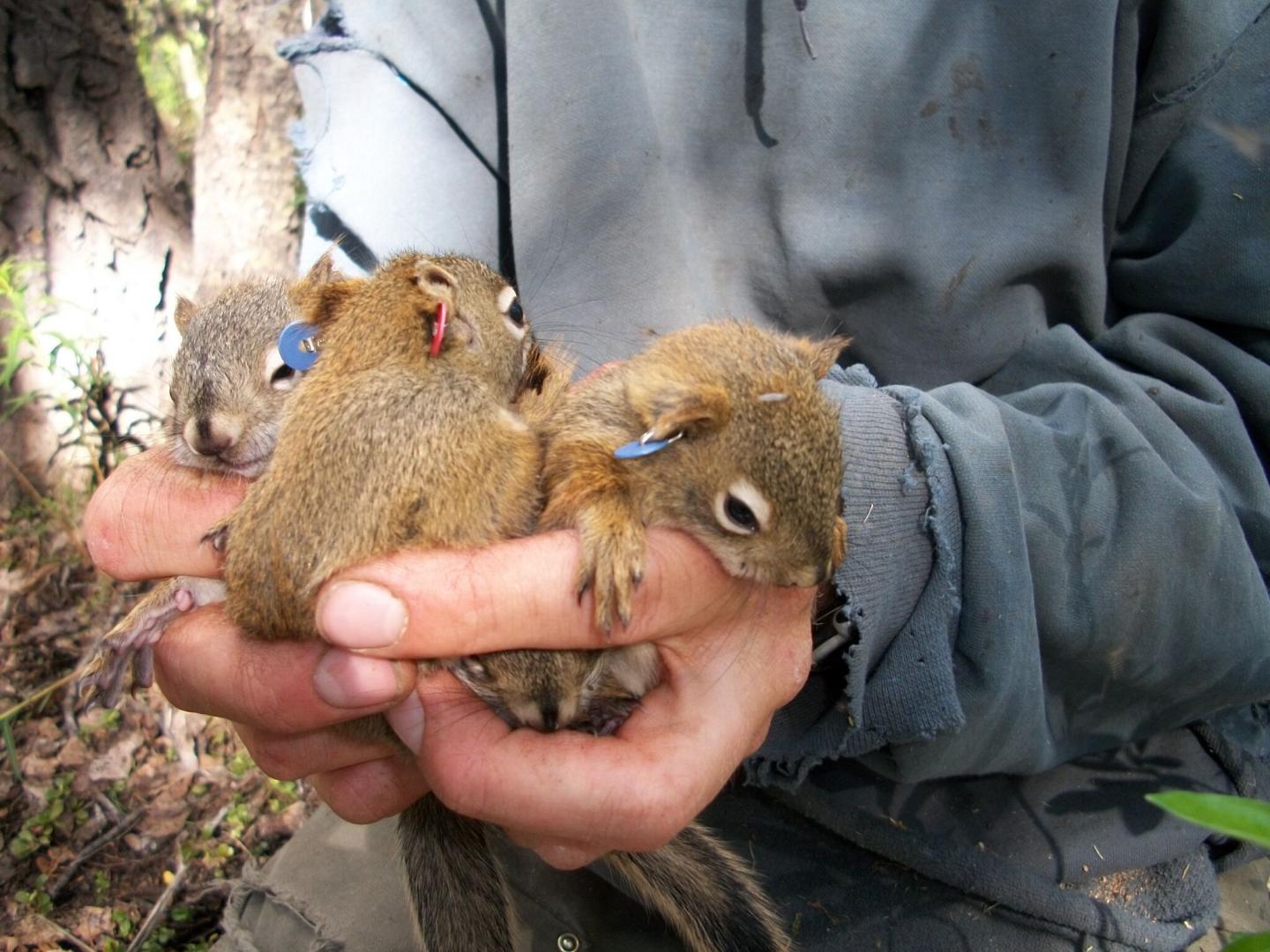
Credit: Bend Dantzer
Those young squirrels now scampering around your neighbourhood were born in this year's earliest litters and are more likely to survive than squirrels born later and still curled up in their nests, according to a new University of Guelph study.
That's because when it comes to survival in the squirrel world, the first out of the nest is best, said David Fisher, a post-doctoral researcher and lead author of the study conducted on squirrels in Yukon.
"We found being born earlier than the other litters in your neighbourhood was a key factor in survival," said Fisher, who worked on the study with U of G integrative biology Prof. Andrew McAdam. "This is because if you are born before your neighbours, you can leave your nest first and find a vacant spot to store your food for the winter."
Published recently in the international journal Evolution, the study examined what traits are most important when it comes to the survival of North American red squirrels. The researchers compared birth dates and growth rates of individual baby squirrels living in the same area as well as to baby squirrels living outside the social neighbourhood.
The study involved more than 2,500 squirrels and is part of the Kluane Red Squirrel Project, a long-term field experiment in Yukon investigating the importance of food abundance to the ecology and evolution of red squirrels. Established in 1987, the project brings together scientists from several universities, including the University of Guelph, to monitor behavior and reproduction of 7,000 of squirrels.
Baby red squirrels, whose life cycle is similar to the Eastern gray squirrel common to Ontario, are typically born between March and May each year and spend just over two months in the nest. Sometimes the mother gives her territory to one of her offspring, usually a daughter, but the rest of the litter is expected to venture out to find their own place, said Fisher.
Young squirrels usually travel no farther than 100 metres from home. Their chance of survival beyond the next four months or so is only 25 per cent and this is largely dependent on whether they find a vacant territory.
One of the reasons for such low survival is that real estate is hard to come by, particularly in years when many other squirrels are living nearby, said Fisher.
"Since squirrels store their food underground, their survival depends on finding vacant or new territories to do this. Young squirrels can't oust adult squirrels from their territories so early-born litters have an advantage because they are able to begin searching for vacant or new territories first."
Birth date is a heritable trait and this study shows an early birth date helps red squirrels living in densely populated neighbourhoods. However, Fisher said he hasn't yet seen an overall trend toward earlier births.
"When we expect to see evolution, but no evolution occurs, this is called evolutionary stasis," he said, adding that the researchers continue to seek an explanation.
This study is one of the first to show multilevel natural selection which is when traits of a group, such as a herd or flock, influence the success of individuals, said Fisher.
"In this case, we looked at the social neighbourhood of a squirrel, even though squirrels certainly don't live or move in groups. From a conservation and management perspective, this means that when studying animals that may not live in obvious groups, we need to still consider traits within things like social neighbourhoods because these traits can alter how an animal responds to selection pressure. "
###
Media Contact
David Fisher
[email protected]
@uofg
http://www.uoguelph.ca





